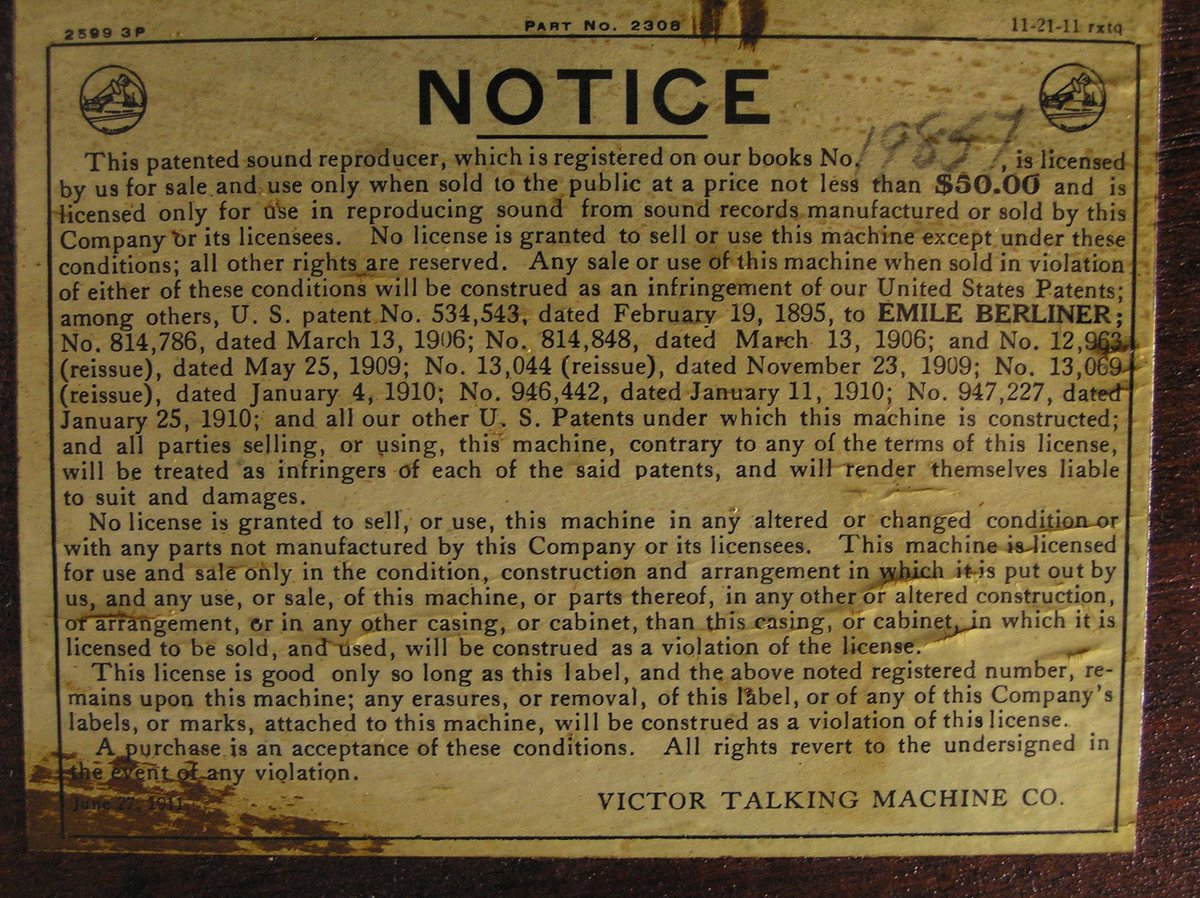I have been writing a column for @locusmag for 14 years (!) and it& #39;s been some of my best work.
Blogging (and tweet-threading) is a good way to keep track of the ideas and events that seem significant - breaking them down for an audience helps me make sense of them.
1/
Blogging (and tweet-threading) is a good way to keep track of the ideas and events that seem significant - breaking them down for an audience helps me make sense of them.
1/
The value of all that short-form work comes together when it& #39;s time to do something longer and more synthetic, pulling on all these threads that I& #39;ve carefully teased out and organized in my own personal memex.
2/
2/
Today, Locus published my longest, most substantial column ever, a piece that I wrote in something of a white heat about a month ago, called (somewhat ironically): "IP."
https://locusmag.com/2020/09/cory-doctorow-ip/
3/">https://locusmag.com/2020/09/c...
https://locusmag.com/2020/09/cory-doctorow-ip/
3/">https://locusmag.com/2020/09/c...
It& #39;s a long read and I& #39;m not even going to try to summarize it all, but I& #39;ll sketch out the main thesis here.
The term "IP" drives activists nuts because it& #39;s so vague - trademarks, copyrights and patents aren& #39;t really related, and they also aren& #39;t really "property."
4/
The term "IP" drives activists nuts because it& #39;s so vague - trademarks, copyrights and patents aren& #39;t really related, and they also aren& #39;t really "property."
4/
But if you pay attention to how people actually use "IP" a coherent (albeit colloquial) definition emerges:
"IP is any law that I can invoke that allows me to control the conduct of my competitors, critics, and customers."
5/
"IP is any law that I can invoke that allows me to control the conduct of my competitors, critics, and customers."
5/
IP is any rule that lets you block interoperability, that lets you bind your critics to silence, that lets you force your customers to arrange their affairs to benefit your shareholders instead of themselves.
6/
6/
The historical term that preceded "IP" is "author& #39;s monopoly," a term that drives copyright advocates nuts. They say (correctly) that having a copyright on a book or a song doesn& #39;t make you a monopolist in the sense of having "market power."
7/
7/
Giving a creator more copyright doesn& #39;t let them extract higher fees from publishers or labels or studios. Yes, they have a monopoly in the narrow sense of "only I can sell the rights to my books" but that doesn& #39;t translate into the kind of monopoly that Amazon or UMG has.
8/
8/
But here& #39;s the thing: we DO live in a monopolized age: a time when a small number of companies exert enormous market power, deciding what& #39;s for sale, who can sell it, what it costs, and what the buyers are allowed to do with it.
9/
9/
And these monopolists are extremely hungry for IP. It started with traditional entertainment companies, who amassed huge catalogs of "creator& #39;s monopolies" that they used to bolster their "market power monopolies."
10/
10/
If you want to release music with samples in it, you have to sign with a label; doing so puts your music in their exclusive catalog, so the next person who wants to sample has an even greater incentive to sign with a label.
11/
11/
And while traditional monopolists have to worry about competitors using the law to punish them for operating monopolies, dominant firms that include "creator& #39;s monopolies" get to use the law to punish competitors for trying to undo their monopolies.
12/
12/
The musician who samples the UMG catalog without a license puts their fortune on the line and risks brutal litigation.
And while this was invented by entertainment companies, software has spread "IP" into every class of device.
13/
And while this was invented by entertainment companies, software has spread "IP" into every class of device.
13/
"IP" is how car companies and ventilator manufacturers fight Right to Repair and it& #39;s how smart light-socket companies force you to buy their lightbulbs.
But software IP isn& #39;t just a lever to force you to arrange your affairs to benefit a manufacturer& #39;s shareholders.
14/
But software IP isn& #39;t just a lever to force you to arrange your affairs to benefit a manufacturer& #39;s shareholders.
14/
Software is also a tool for automating enforcement of your subservience to those shareholders& #39; interests. Many products have come with restrictions, but if you defeated those restrictions in the privacy of your home, you would likely never be caught.
15/
15/
Software-enabled IP isn& #39;t just illegal to subvert - it also KNOWS WHEN YOU TRY, and rats you out. It is a tightening noose around our lives - not just our digital lives, but every aspect of them.
16/
16/
This all came to me after I started researching the history of the Free Software movement for a conference talk. On the way, I was privileged to have several long discussions with colleagues who helped me work through the hard parts.
17/
17/
So before I sign off, I want to thank them: @makoshark, Zephyr Teachout, @PamelaSamuelson and Seth David Schoen. Any of the smart stuff in this longest of Locus columns is down to them - but the stupid stuff is probably my fault.
18/
18/
Also, I& #39;d like to thank the audience at #Hope2020 who let me beta-test a version of this argument on them as a conference talk.
I hope you enjoy it!
https://locusmag.com/2020/09/cory-doctorow-ip/
eof/">https://locusmag.com/2020/09/c...
I hope you enjoy it!
https://locusmag.com/2020/09/cory-doctorow-ip/
eof/">https://locusmag.com/2020/09/c...

 Read on Twitter
Read on Twitter


